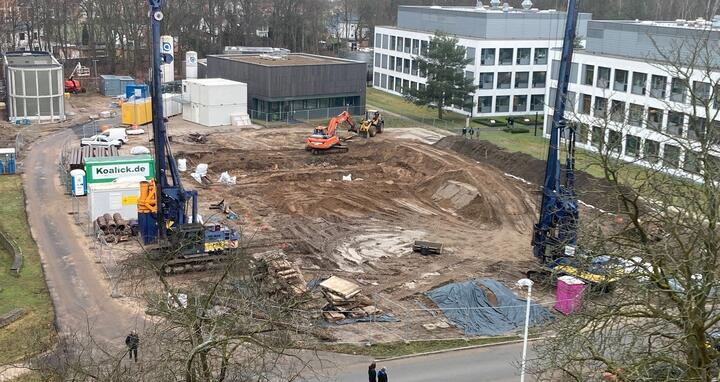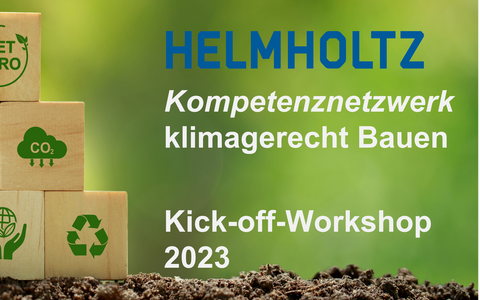Designing climate-friendly research infrastructures
The centers of the Helmholtz Association strive to offer the optimal conditions for excellent research; at the same time, they face the societal challenge of making the infrastructure supporting this research as climate-friendly as possible. To ensure that this can be achieved, the Helmholtz Association is supporting the establishment of the Helmholtz Competence Network: “Climate-friendly Construction” (HKB). Its mission is to pool and continuously develop administrative expertise in construction, as well as provide individual centers with conceptual advice and operational support. This involves construction, both of new builds and renovation work, as well as the operation and management of buildings and infrastructure.
Ralf Streckwall and Dr. Michael Hinz, together with Olaf Rabe, formerly of the Helmholtz Centre for Infection Research, raised 2.5 million euros in funding and began setting up the competence network at the Max Delbrück Center in 2023. In October, Christian Langfeld, formerly head of the Research Construction department at the Fraunhofer Society, took over leadership of the team.
The kick-off took place at the end of November in Berlin. The network invited the heads of the Facility Management departments at the Helmholtz centers as well as a number of construction industry experts to the workshop. There, they discussed how the HKB could support the Helmholtz centers in developing climate-friendly research infrastructure and making existing buildings “climate-neutral ready.” Ahead of the event, the specialist departments had evaluated possible goals and measures via a survey. In addition to more effective administrative regulations, the results expressed a particular desire for targeted training and a knowledge database.
Energy efficiency pays off in the long term
“Central issues include energy monitoring and benchmarking in operations,” says Michael Hinz, who will take over as deputy team leader of the network in 2024. How can we succeed in reducing consumption, costs and emissions with the help of innovative technology and responsible behavior? “At the same time, it’s about identifying potential uses for renewable energies.”
The Helmholtz Competence Network for Climate-Friendly Construction was launched with a kick-off in November.
The “Intracting Model” presented by Professor Jens Knissel from the University of Kassel met with great interest. Savings achieved through energy efficiency are directly invested in financing new measures — allowing for initial costs to be amortized in the long term. Several centers, including the Forschungszentrum Jülich, the Helmholtz-Zentrum Dresden-Rossendorf and the Max Delbrück Center, plan to implement this model in the future.
“The workshop was very constructive, and the network is currently evaluating the results,” says Hinz. The HKB's work program for the coming year will be based on input and recommendations that came out of the workshop. This includes, among other things, the creation of a homepage as an information and knowledge platform, training and information events, as well as site visits to the centers to identify center-specific features and needs, “best practice” examples and problems to be solved, and to develop opportunities for knowledge transfer.
Additional information
- Sustainability strategy of the German Federal Government (German only)
- “Sustainability cannot be achieved alone”






